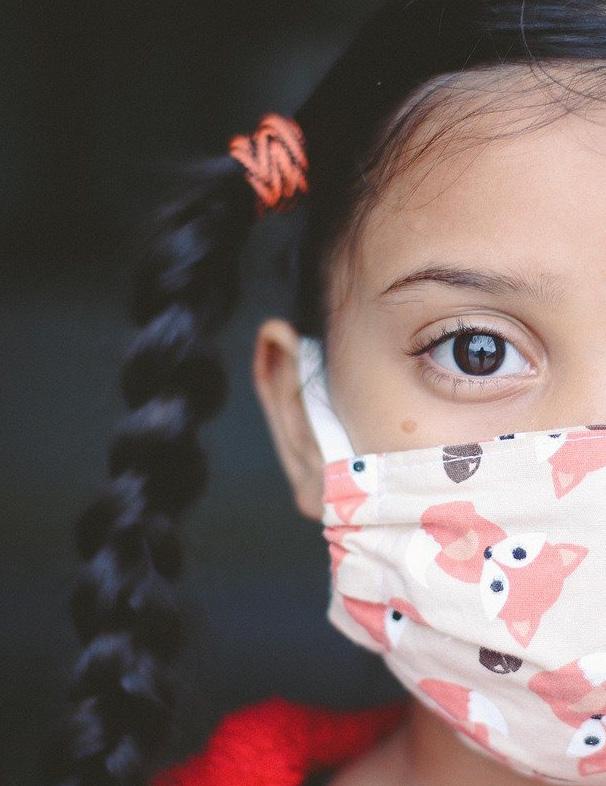
Volume 9 - Issue 7 eclac analyzes covid-19's MULTIPLE EFFECTS ON THE REGION'S POPULATION spotlight on san pedro, BELIZE eclac encourages IMPLEMENTING POLICIES FOR EFFECTIVE SDGS FULFILLMENT
Issued on a monthly basis, The Hummingbird offers insights into the latest projects, publications, technical assistance missions and research carried out by ECLAC Caribbean. In addition to these, sneak previews are provided of the most salient upcoming events, alongside enriching followups to previously covered issues. With a view to featuring a variety of facets of Caribbean life and lifestyle, The Hummingbird also zooms in on cultural activities and landmark occurrences through an eye-opening regional round-up.
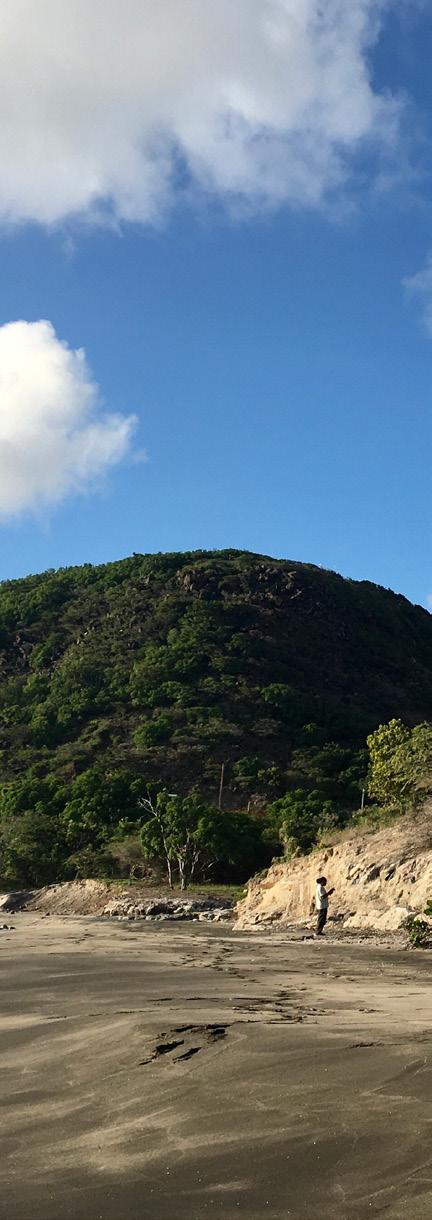

EDITORIAL

Copy
Proof
Please see our contact details on the back cover of this magazine.
us New report launched on state of the climate in Latin America and the Caribbean A HUMMING BIRD FEATURE: ECLAC analyzes COVID19’s multiple effects on the region’s population Countries consider implementing Integrated Geospatial Information Framework Spotlight on San Pedro, Belize ECLAC encourages implementing policies for effective SDGs fulfillment 4 6 10 12 14 5 15 6
TEAM Editor: Johann Brathwaite
Editor: Denise Balgobin
Reader: Veera Deokiesingh-Fraser Publication Design: Liseanne Martin-Subero
About
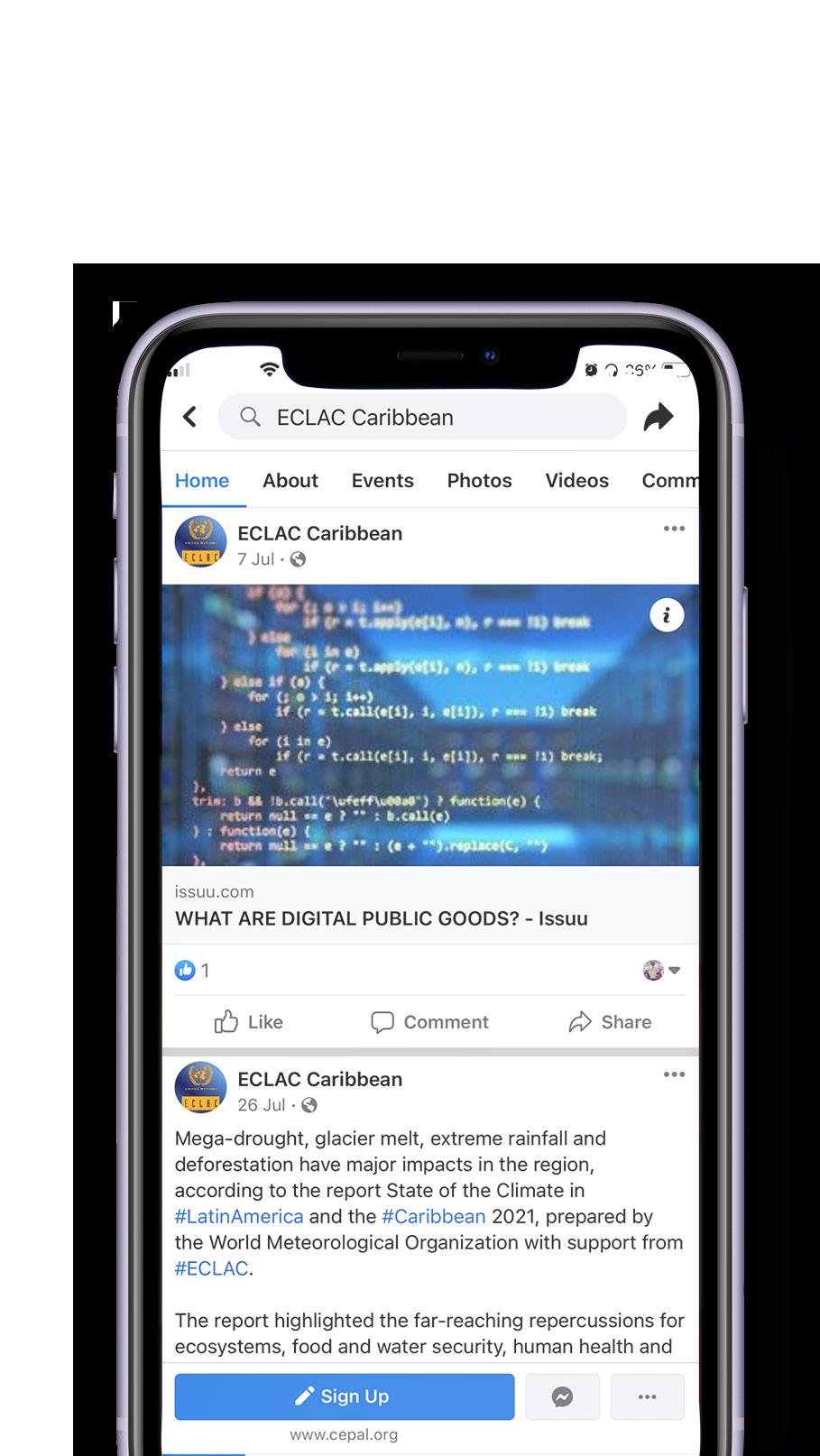
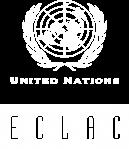
Days Upcoming Meetings 30 July World Day against Trafficking in Persons 9 August International Day of the World's Indigenous Peoples 12 August International Youth Day 19 August World Humanitarian Day 26 JULY 2022 High-level meeting on the ECLAC Caribbean Resilience Fund 27 JULY 2022 Conference of Ibero-American Water Directors V InterCODIA 29 JULY 2022 XX Ordinary Meeting of the Central American and Dominican Republic Council for Potable Water and Sanitation (CONCARD-APS).
International
NEW REPORT LAUNCHED ON
STATE OF THE CLIMATE IN LATIN AMERICA AND THE CARIBBEAN
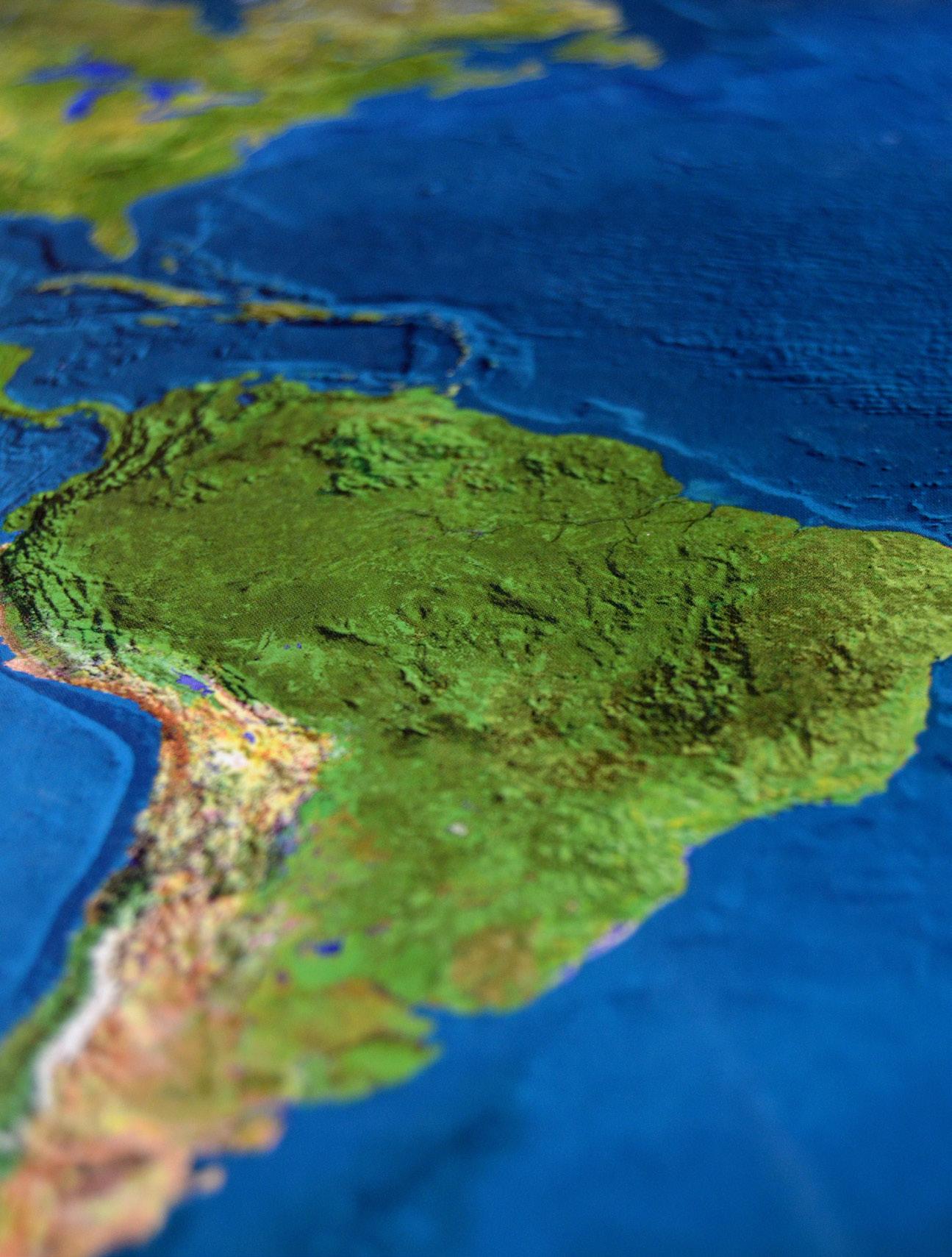
Latin America and the Caribbean face the adverse effects of extreme weather and climate change impacts, including megadrought, extreme rainfall, land and marine heatwaves.
This was acknowledged in a recently launched report from the World Meteorological Organization (WMO), which also highlighted the far-reaching repercussions for ecosystems, food and water insecurity, human health and poverty.
Titled “Report on the State of the Climate in Latin America and the Caribbean”, it is a useful source of science-based information for climate policy and decision-making and warns that increasing sea-level rise and ocean warming are expected to continue to affect coastal livelihoods, tourism interests, health, food, energy, and water security, particularly in small islands and Central American countries.
ECLAC Caribbean Director, Diane Quarless, spoke on behalf of ECLAC Acting Executive Secretary, Mario Cimoli at the launch, during a panel, which was
4|The Hummingbird
grenada's spicemas carnival
RETURNS!
Another top Caribbean carnival is making its long-awaited return. Grenada’s Spicemas is returning this summer, with the festivities launching on 8 and 9 August.

“We are thrilled by the return of Spicemas this summer. It is undoubtedly a highlight of the year for locals and visitors alike, showcasing the best entertainment and culture that Grenada has to offer. We look forward to welcoming revelers who return year after year, and first timers for this unique and all-immersive event,” said Petra Roach, CEO of the Grenada Tourism Authority.
The event includes everything from Fantastic Thursday, which sees calypsonians, power soca and groovy soca artistes compete for the title of Calypso, Soca and Groovy Monarch, to a steel pan competition.
The event concludes in the early hours of Carnival Monday with the classic J’ouvert parade. “We are excited to stage our first Spicemas in three years. From all indications this will be our biggest festival ever,” said Arley Gill, chairman of the Spicemas Corporation, which operates the event. “We will celebrate life through our portrayals and music. And of course, Spicemas remains the home for Jab-Jabs from all over the world.”
jointly organized by WMO Regional Associations III and IV, ECLAC and the United Nations Office for Disaster Risk Reduction (UNDRR). She pointed to the peculiar vulnerability of small island States which threatened their economic, social and environmental sustainability.
She said that Caribbean coastlines were subject to the annual recurrence of massive sargassum blooms.
She recalled the devastating impact of hurricanes Irma and Maria in 2017; category five storms that left Dominica with damage and losses equivalent to 226% of its gross domestic product (GDP), recovery from which was still ongoing five years later. She said 2021 also had a very active hurricane season.
“Many countries experienced major flooding and landslides following tropical storms Elsa and Grace. For Saint Vincent and the Grenadines, Saint Lucia and Barbados, these hydroclimatic impacts were compounded by a volcanic eruption on Saint Vincent, causing major dislocation, damage and loss. Heavy rainfall during May and June had devastating impact on Caribbean countries, notably Guyana and Suriname.
The panel saw participation from among international, regional, and financial institutions, noting specific areas of collaboration to support the expansion of early warning systems.
That was possible through impactbased forecasting and risk-based warnings of extreme weather, water, and climate events.
Several key messages were suggested for the upcoming COP27 meeting, to be held in Egypt from 6th to 18th November 2022.
Similar catastrophic multidimensional events were experienced in Haiti, reeling from the impact of both earthquake and storm,” Quarless added.
The Hummingbird |5

MULTIPLE EFFECTS ON THE REGION'S POPULATION eclac analyzes covid-19's 6|The Hummingbird
Anew report from ECLAC has suggested that countries of Latin America and the Caribbean safeguard and strengthen the rights of all people in the post pandemic reconstruction period. This complements the need to address challenges to the quality of life of the population.
The report was recently presented to the countries of the region during the Fourth Session of the Regional Conference on Population and Development.
read more

The Hummingbird |7
ECLAC analyzes COVID19’s multiple effects on the region’s population
The document, entitled “The sociodemographic impacts of the COVID-19 pandemic in Latin America and the Caribbean”, includes recommendations aimed at social and economic recovery and transformation, in light of the measures contained in the Montevideo Consensus on Population and Development and the Goals and targets of the 2030 Agenda for Sustainable Development.
Two years after the pandemic was first confirmed, the Latin American and the Caribbean region accounts for a total of 1.7 million reported COVID-19 deaths (as of May 2022). This represents 27.2 per cent of all COVID-19 deaths in the world, even though the region represents just 8.4 per cent of the global population.
The document addresses the challenges for women and other vulnerable groups, including children, adolescents and youth, older persons, international migrants, indigenous peoples, Afro-descendent populations and people with disabilities.
It states that the crisis affected women’s employment to a greater extent than men. The rate of women’s participation in the labour force fell to a level not experienced in 18 years due to the
crisis, dropping from 51.8 per cent in 2019 to 47.7 per cent in 2020. In the case of men the labour rate fell from 75.5 per cent to 70.8 per cent in the same period.
For 2022, it is estimated that women’s participation rate will rise to 51.3 per cent, a figure similar to that which was seen in 2018. This represents a four-year setback, which still leaves one out of every two women of working age outside the labor market.
In the case of children and adolescents, there were closures of educational centers, postponement and suspension of regular health check-ups, and disruptions in feeding programmes, resulting in setbacks in the fight against child undernutrition in some countries. As regards sexual and reproductive health, the reorientation of monetary and human resources to contain the health emergency left these and other dimensions of health untended.
continued from page 7
8|The Hummingbird
The report emphasizes that, despite data confirming their greater vulnerability, government responses aimed at mitigating the pandemic’s social and health impacts among indigenous peoples were found to be weak and fragmented. In the case of Afro-descendent people and communities across Latin America, the report stresses that the pandemic has had a serious effect on them, infringing on many of their rights, increasing incidence of racism and discrimination and raising inequality,
The document further warns that, notwithstanding circumstances of economic and health crises, migration – both intra- and extra-regional –continues unabated. Thus it is that with more than 40 million migrants in the region, it is vitally important to have effective mechanisms for safe, orderly and regular movement of people.
The report dedicates a special chapter to reviewing the sociodemographic impacts of COVID-19 in the Caribbean given the subregion’s specificities and particularities, whether in relation to the high disease burden attributable to noncommunicable diseases or vaccine hesitancy.

Moreover, it emphasizes the importance of having robust and resilient national statistical systems, capable of providing timely, accurate and disaggregated data for monitoring the effects of COVID-19 and outlining plans of action, at both national and local levels.
Finally, it presents recommendations for achieving recovery with equality within the framework of the of the Montevideo Consensus. In this framework, it is essential that the protection of rights and the promotion of the well-being of individuals, families and communities be placed at the center of public policy.
The Hummingbird |9
countries consider
IMPLEMENTING AN INTEGRATED GEOSPATIAL INFORMATION FRAMEWORK

The UN Global Geospatial Information Management (GGIM) Americas recently held its first virtual seminar, which provided an opportunity to discuss the topic: “Why implement the Integrated Geospatial Information Framework (IGIF) in my country?”
The seminar was organized by the UN-GGIM Americas and the Caribbean Geospatial Development Initiative (CARIGEO) Coordinating Committee, with the collaboration of the IGIF High Level Group.
Seminar organizers welcomed representatives from the geospatial community, including
organizations that lead the development of the Geospatial Data Infrastructure (IDE) at the national level. There were also technical staff and decision makers in different sectors of public administration at various territorial levels, such as statistics, health, education, environment, natural resources, housing, public works, energy, disaster management, social, and agriculture, among others.
Representing ECLAC Caribbean were Coordinator of the Sustainable Development and Disaster Unit (SDDU), Artie Dubrie, and Economic Affairs Assistant in
SDDU, Elizabeth Thorne.
Dubrie explained. “In my opinion, the seminar was successful, as it encourages interest in dissemination of the IGIF to institutional actors, linked to the management of geospatial and statistical information. We will also be able to share good practices on implementation of the IGIF at the national level.”
The main message was that citizens, communities, businesses, governments and many other actors benefit every day (often unknowingly), from the use of geospatial information and location-based services. This is
10|The Hummingbird
because geospatial information provides the digital connection between a place, people and their activities and is also used to know what, where, how and why things are happening. It is also used to model and represent the impact of past, present and possible future scenarios.
Geospatial information is a nation's “digital currency” for evidence-based decision-making. It is an indispensable component of a national infrastructure and knowledge economy, providing a model of what happens and where, and the means to integrate a wide variety of public services that contribute to economic
growth, national security, environmental sustainability and national prosperity.
The IGIF was developed collaboratively between the UN and the World Bank, with the objective of providing guidance to countries, to develop and strengthen their national and subnational agreements on geospatial information management and related infrastructure.
The IGIF provides strategic guidance for the implementation of integrated solutions for evidence-based decision-making and the maximization and use

of national information systems that are adapted to the individual situations and circumstances of each country.
The Framework is intended to help countries move towards digital economies, services and commerce to improve services to citizens. It can also enhance capacity to use geospatial technology, improve informed decision-making processes of governments, facilitate the development of the private sector, take practical actions to achieve digital transformation, and bridge the geospatial digital divide in the implementation of national strategic priorities and mandates.
The Hummingbird |11
SPOTLIGHT ON SAN PEDRO,
BELIZE
Founded in 1848, San Pedro is the colourful capital city of Belize’s biggest island, Ambergris Caye. It is believed that back in 1986, American pop singer, Madonna, visited San Pedro, which inspired her to write the hit song, “La Isla Bonita.” The video for that song was filmed in San Pedro and many locals appear in the background behind the singer.
Officially, the population of San Pedro is around 20,000 people, but Ambergris Caye is the most popular tourist destination in the country, attracting hundreds of thousands of people every year. Locals are known as San Pedranos, most of whose ancestors came from Mexico. Today, most people in San Pedro speak English as a first language, but are conversant in basic Spanish.
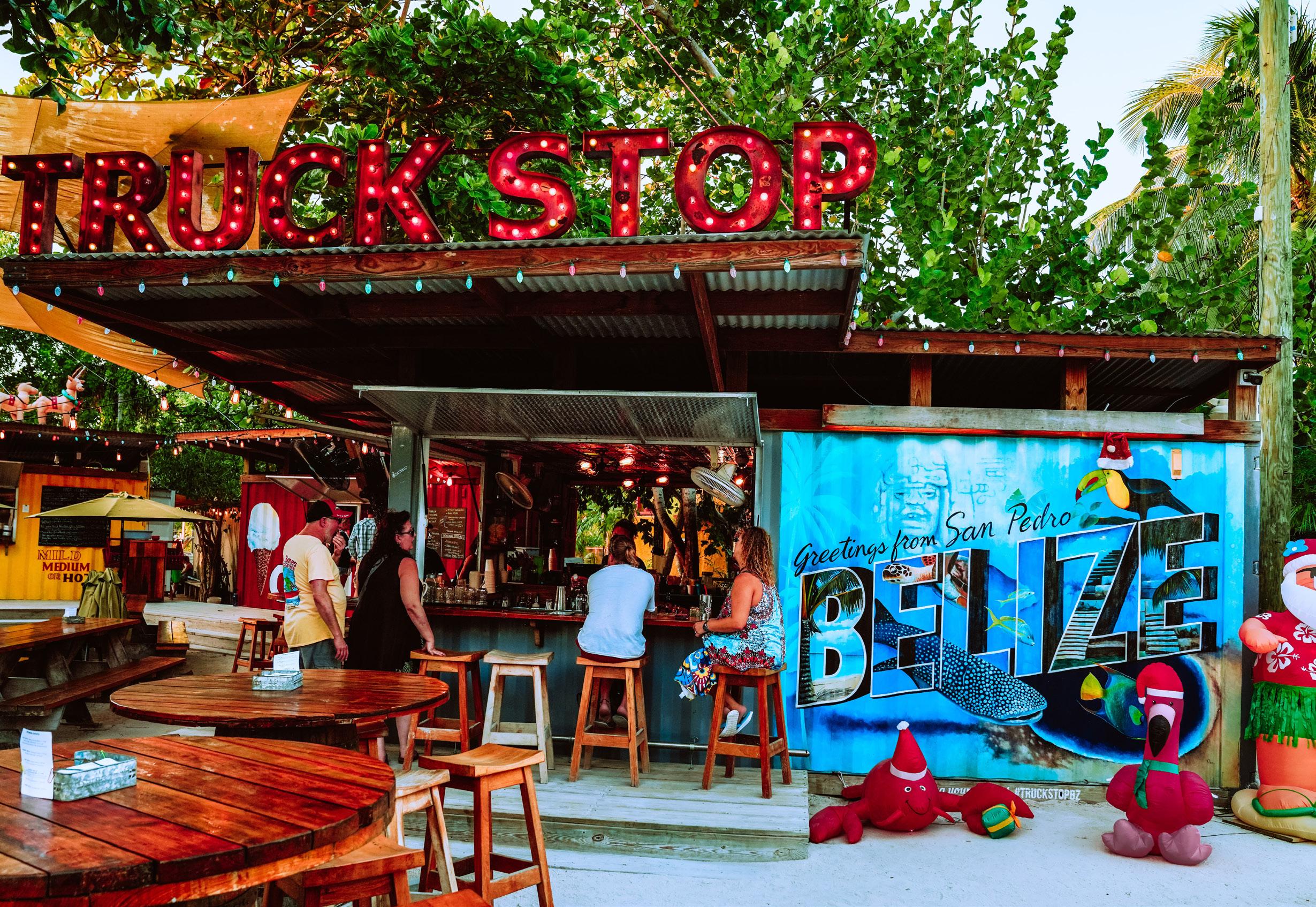
12|The Hummingbird
San Pedro has everything a visitor might want, including resorts, hotels, high-speed internet, banks, shops, swimming pools, and even a gourmet farmer’s market.
San Pedro has its own airstrip, with regular connections to the mainland, as well as a water taxi dock with connections to Belize City and nearby islands such as Caye Caulker.
It is a popular gateway to the nearby Belize Barrier Reef, and home to fantastic seafood restaurants serving lobster, conch, fish, and other delights fresh-caught daily and prepared to order. San Pedro is also where you’ll find dive centers that rent equipment and offer dive/ snorkel tour operators for trips to the reef, including the Hol Chan Marine Reserve and Shark Ray Alley.
Popular activities in San Pedro include windsurfing, kiteboarding, sea kayaking, bird watching, fishing, sailing, snorkeling and scuba diving. San Pedro sits at the southern tip of the island, but most of the central and northern end is undeveloped, making it an ideal location for spotting birds and indigenous wildlife.
San Pedro is home to several exuberant festivals throughout the year, including a raucous Carnival, a Lobsterfest in June, and the International Costa Maya Festival in August, a week-long combination of beauty pageant, street fair, and live music concert.
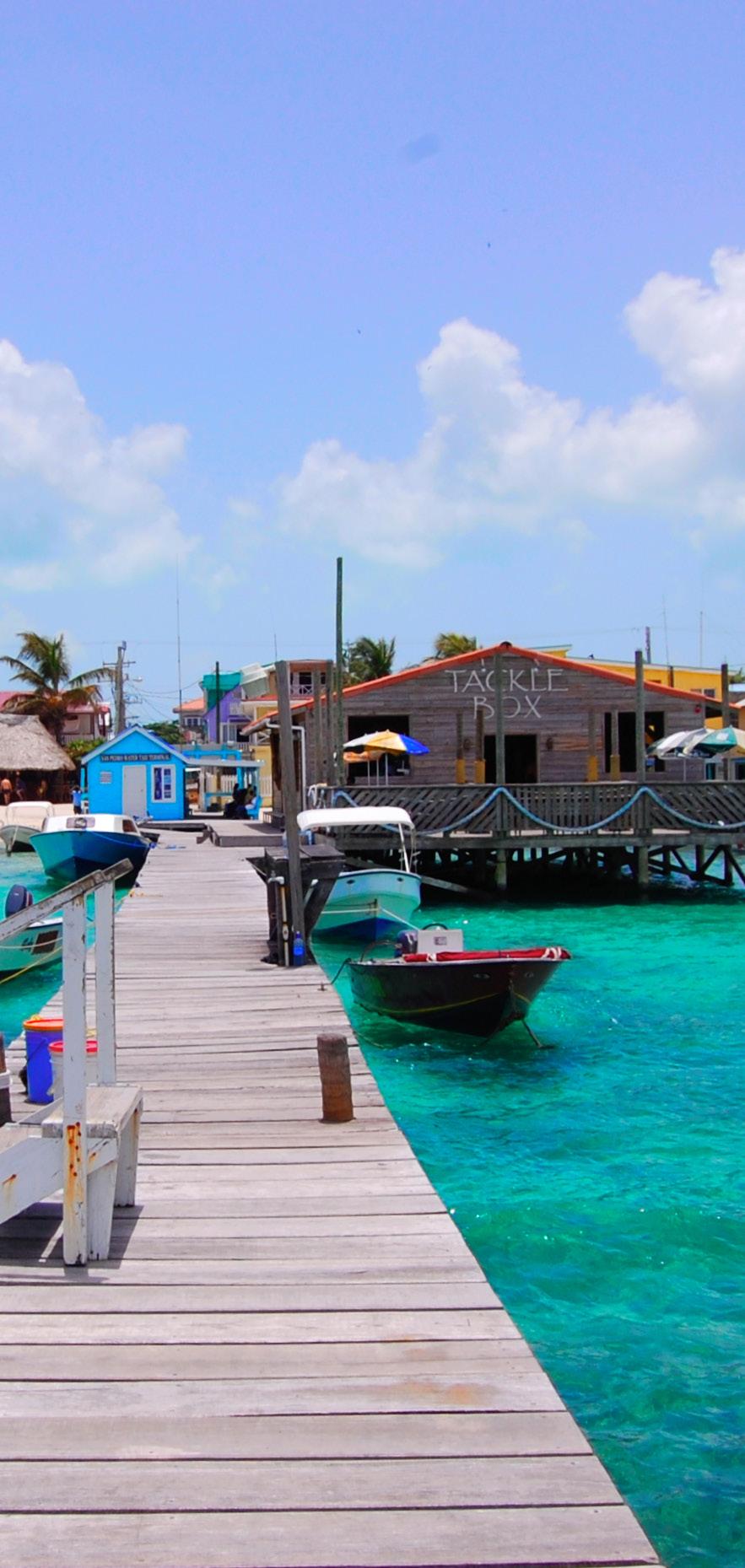 PHOTO CREDIT:WIKIMEDIA COMMONS
PHOTO CREDIT:WIKIMEDIA COMMONS
San Pedro is an island town, and the most popular form of transportation is by bicycle or electric golf cart.
The Hummingbird |13
ECLAC’s Acting Executive Secretary, Mario Cimoli, participated in the UN’s High-Level Political Forum on Sustainable Development for 2022, held on 14 July. Cimoli focused on listening to messages coming from the regions, in a segment entitled, “Messages from the Regions: Regional action and leveraging regional frameworks to support countries on the road to recovery and rebuilding from the devastating impacts of the pandemic”.
Cimoli warned that with just eight years before the deadline for achieving the SDGs, the structural challenges for its implementation had increased in a context of multiple crises. In that scenario, he indicated, the implementation of policies that would allow for their effective fulfillment was a matter of urgency.
“Both the importance of the SDGs as well as the difficulties for achieving them are clear. It will be impossible without financing for development and without fiscal space for the economies of Latin America and the Caribbean and middle-income
ECLAC encourages implementing policies
FOR EFFECTIVE SDGS FULFILLMENT

14|The Hummingbird
countries,” he stated. Cimoli added that it was important to ensure food security and manage the accelerated rise in food prices that the region was experiencing. Furthermore, he stressed the importance of international cooperation for implementing the energy transition in developing economies, which were under pressure on prices and unsustainable debt.
Earlier in the day, Cimoli participated in a virtual side event, on Development in Transition, where he listed important areas that needed policies to allow for the effective
fulfillment of the Sustainable Development Goals (SDGs). Those included financing for development, food security, the energy transition, integrated management of natural disasters, and climate action.
The side event was organized by the Government of Costa Rica and ECLAC. Participants highlighted the multidimensional nature of development and the importance of multilateral action, and reaffirmed Development in Transition as the new paradigm for international cooperation.
Participants agreed that
statia's "giant step"
ON ENVIRONMENTAL PRESERVATION
the concept may be guided by recognition of the multidimensional and continuous nature of development processes and the specificities of Latin American and Caribbean countries. They also supported the idea of moving towards partnerships based on shared agendas adapted to the specific needs of countries and with the goal of addressing structural development gaps, contributing to the generation of regional and global public goods.
“We believe it is important to face what is coming. ECLAC has said it well and will say it again in its next session, which will take place in Argentina in October: the reconstruction or reshaping of another way of rethinking globalization and multilateralism contemplates middle-income economies, or the development process, as something in transition, which cannot be measured solely by
the domestic product, and this seems to us to be an extremely relevant issue,” Cimoli said.
He also emphasized that the partnership between Europe and Latin America and the Caribbean plays a crucial role, because that was where the Development in Transition concept was conceived. “The region is working towards greater integration.”
Cimoli was accompanied by ECLAC Caribbean Director, Diane Quarless and Chef de Cabinet Romain Zivy in the meeting with Ambassadors and Permanent Representatives of the member States of the Caribbean Community (CARICOM).
The Dutch Caribbean island of Statia has taken what officials are calling a “giant step” towards its environmental preservation push.
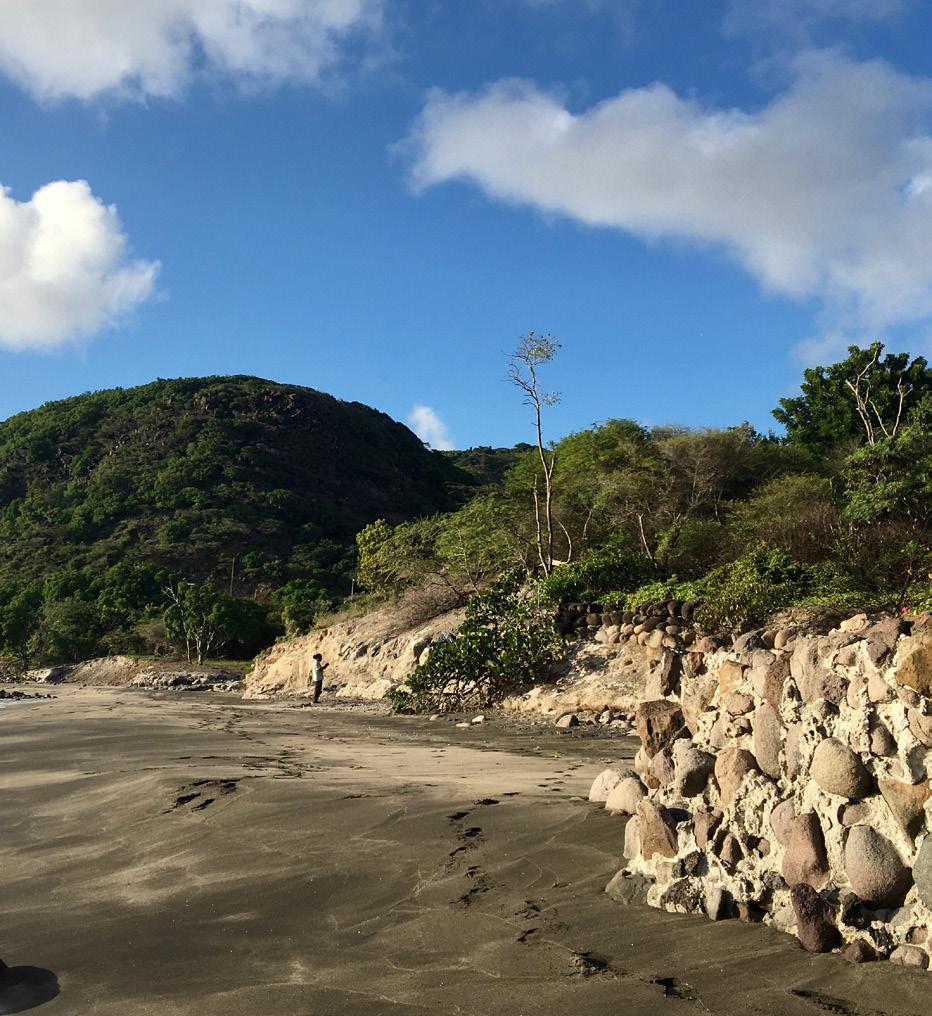
The island’s Ministry of Infrastructure and Water Management has signed a letter of intent with the public entity, Saint Eustatius, to work together to implement new Dutch Caribbean environmental laws.
“We take one small step for the environment, one giant leap for Statia,” said Claudia Toet, deputy Government Commissioner in Saint Eustatius. “With the stroke of a pen we continue the journey to a true commitment to our environment, which is in keeping with our vision for a green Statia.”
It is part of a broader decree from the Netherlands’ central government in The Hague to direct businesses to take the necessary steps to protect the environment in the area, which also includes Bonaire and Saba.
The plan is to support the development of defining environmental rules in Statia, building capacity in relevant departments and achieving a “sustainable level of knowledge transfer” on what is required to implement the environmental laws.
The decree itself takes effect on 1 January 2023. It represents a big step for an island that has always been home to one of the Caribbean’s most pristine natural environments, anchored by The Quill, the island’s imposing dormant volcano.
The Hummingbird |15
PHOTO CREDIT: WIKIMEDIA COMMONS
THE KITCHEN
HERBY TENDER SCONES Cheesy,
What you will need:

• 6 cups all-purpose flour
• 6 tsp baking powder
• 1 tsp salt
• 1 cup unsalted butter, very cold, cut into cubes
• 2 cups sharp cheddar cheese, grated
• 1½ cups chopped fresh chive
• 1 bunch French thyme, leaves removed
• 1 hot pepper, seeded and finely chopped
• 1 16 oz tub full cream plain yogurt
How to Make it:
Step 1: Heat oven to 400 F.
Step 2: In a large mixing bowl place flour, baking powder and salt. With a pastry blender cut butter into flour until the mixture resembles fine peas.
Step 3: Add cheese, chive, thyme, and pepper, gently stir.
Step 4: Whip the yogurt until smooth and add mixture to flour, stir gently with a wooden spoon until mixture holds together. Turn the mixture onto a floured surface.
Step 5: Divide into 2 parts.
Step 6: Very gently knead to a rough ball. Gently press out each piece with your hands to about 1 inch thickness. Using floured cutters stamp put scones.
Step 7: Place onto a baking sheet and sprinkle on some extra grated cheese.
Step 8: Bake at 350 F for about 15 minutes.
16|The Hummingbird

The Hummingbird |17







Subregional Headquarters for the
MEDIA CONTACT
CONTACT US SOCIAL MEDIA CLICK HERE OR SCAN THE QR CODE TO VISIT OUR WEBSITE... ECLAC Subregional Headquarters for the Caribbean,
MEDIA CONTACT
CONTACT US SOCIAL MEDIA
ECLAC
Caribbean, 1 Chancery Lane, P.O. Box 1113, Port of Spain, Trinidad and Tobago, West Indies. Telephone: 1 868 224 8000 E-mail: registry@eclacpos.org
Tel.: 1 868 224 8075 E-mail: media-pos@eclac.org
1 Chancery Lane, P.O. Box 1113, Port of Spain, Trinidad and Tobago.
Tel.: 1 868 224 8075 E-mail: eclac-media-pos@eclac.org















 PHOTO CREDIT:WIKIMEDIA COMMONS
PHOTO CREDIT:WIKIMEDIA COMMONS








